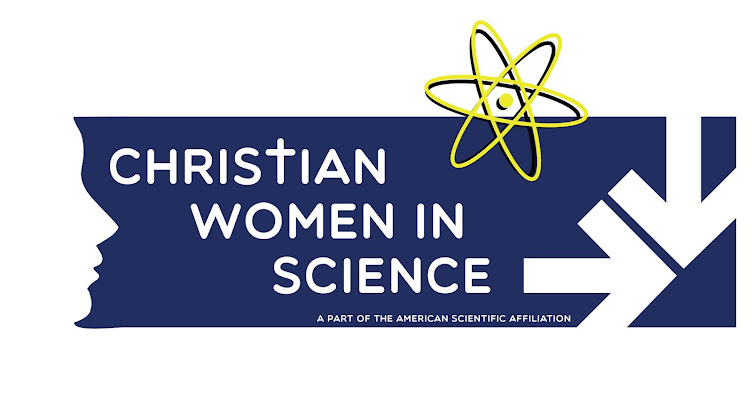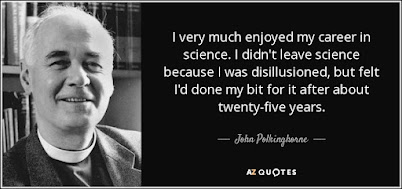John Polkinghorne died on 9 March 2021. He was an English particle physicist, theologian, Anglican priest, and Professor of Mathematical Physics at Cambridge University. He served as the president of Queens' College, Cambridge from 1988 until 1996.
In 1977, he decided that he had “done [his] bit for physics”, and he resigned from his university position to begin a second career in the Church. He was ordained a priest in 1982. He served as canon theologian of Liverpool Cathedral from 1994 to 2005.
After a number of years as a parish priest he returned to the academic world and made a significant contribution to the field of science and religion, something he continued to do until his death at age 90.
In his 2007 book Quantum Physics and Theology: An Unexpected Kinship (London: SPCK), Polkinghorne articulated five points of comparison between the ways in which science and theology pursue truth: moments of enforced radical revision, a period of unresolved confusion, new synthesis and understanding, continued wrestling with unresolved problems, deeper implications.
In the 2008, Polkinghorne wrote, "There are aspects of our scientific understanding of the
universe that become more deeply intelligible to us if they are viewed in a
Trinitarian perspective." (Science and the Trinity, p. 61)
An irritating feature of modern life is the way in which useful words get hijacked and used for different, and often unacceptable, purposes. An example is “creationist”. As a Christian believer I am, of course, a creationist in the proper sense of the term, for I believe that the mind and the purpose of a divine Creator lie behind the fruitful history and remarkable order of the universe which science explores. But I am certainly not a creationist in that curious North American sense, which implies interpreting Genesis 1 in a flat-footed literal way and supposing that evolution is wrong.
The irony of this notion of creationism is that it not only involves many scientific errors, but is also the result of a bad theological mistake. When we read any kind of deep literature, if we are to give it the respect that it deserves we must make sure we understand the genre of what is written. Mistaking poetry for prose can lead to false conclusions. When Robert Burns tell us his love “is like a red, red rose”, we know that we are not meant to think that his girlfriend has green leaves and prickles. Reading Genesis 1 as if it were a divinely dictated scientific text, intended to save us the trouble of actually doing science, is to make a similar kind of error. We miss the point of the chapter if we do not see that it is actually a piece of deep theological writing whose purpose, through the eight-times reiterated phrase “And God said, ‘Let there be . . .”, is to assert that everything that exists does so because of the will of the Creator. Thus literal creationists actually abuse scripture by the mistaken interpretation that they impose upon it.
Related reading: Remembering John Polkinghorne by Tom C. B. McLeish (University of York, UK); Obituary: The Revd Professor John Polkinghorne
He considered himself a "creationist", but he rejected the literalism of American Fundamentalism. In an article published in 2008 in The Times, Polkinghorne wrote:
An irritating feature of modern life is the way in which useful words get hijacked and used for different, and often unacceptable, purposes. An example is “creationist”. As a Christian believer I am, of course, a creationist in the proper sense of the term, for I believe that the mind and the purpose of a divine Creator lie behind the fruitful history and remarkable order of the universe which science explores. But I am certainly not a creationist in that curious North American sense, which implies interpreting Genesis 1 in a flat-footed literal way and supposing that evolution is wrong.
The irony of this notion of creationism is that it not only involves many scientific errors, but is also the result of a bad theological mistake. When we read any kind of deep literature, if we are to give it the respect that it deserves we must make sure we understand the genre of what is written. Mistaking poetry for prose can lead to false conclusions. When Robert Burns tell us his love “is like a red, red rose”, we know that we are not meant to think that his girlfriend has green leaves and prickles. Reading Genesis 1 as if it were a divinely dictated scientific text, intended to save us the trouble of actually doing science, is to make a similar kind of error. We miss the point of the chapter if we do not see that it is actually a piece of deep theological writing whose purpose, through the eight-times reiterated phrase “And God said, ‘Let there be . . .”, is to assert that everything that exists does so because of the will of the Creator. Thus literal creationists actually abuse scripture by the mistaken interpretation that they impose upon it.
Related reading: Remembering John Polkinghorne by Tom C. B. McLeish (University of York, UK); Obituary: The Revd Professor John Polkinghorne


No comments:
Post a Comment